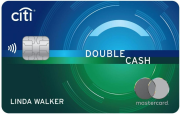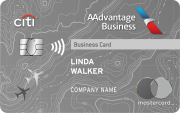The content on this page is accurate as of the posting date; however, some of the offers mentioned may have expired.

Credit card companies are increasingly dangling reward cards to lure new customers, offering cash back and points that can be exchanged for merchandise, airline miles and hotel stays. Though appealing, reward cards may not always be the best option.
A reward credit card is simply a regular card with extra frills to entice you to use it. When you use the card, you earn points with every purchase, depending on how much you charge. You can redeem these points for everything from airline rewards and cash rebates to movie tickets, TV's and DVD's.
Reward cards are popular option among consumers. About 50 percent of all credit card offers contain some sort of reward component, according to direct mail research Mintel's Comperemedia. And most reward cards 80 percent come with no annual fee. However, they tend to carry a higher annual percentage rate (APR). The typical reward-card annual percentage rate is about 14 percent, which is four points higher than the average non-reward credit card's, according to online payment card researcher CardWeb.com, Inc.
For that reason, experts advise you to exercise caution when signing up for a reward card. Otherwise, you may wind up paying more for the card than the benefits you receive. For instance, if you typically carry a high monthly balance and pay interest charges, you could wind up paying hundreds of dollars in interest to get an item worth only $50. In the long run, the bargain you receive may not be much of a bargain after all.
Weighing the Costs and Rewards
To get the most out of your reward card, you need to make sure it offers the best value for your money and is actually suited for the way you intend to use it. Otherwise, you may wind up paying more than you need for the privilege, depending on your monthly balance and interest rate.
Take frequent-flier reward cards, for example. These airline-affiliated cards generally award one mile for every dollar you spend plus extra miles for spending on travel with airlines and companies associated with the card′s program. They carry annual fees from $50 to $150 per year and APRs as high as 15 to 18 percent, according to CNN/Money.
Airline cards are popular among big spenders and frequent travelers, but they may not be for everyone, says Robert McKinley of payment researcher CardWeb.com. If you fly a lot, charge a lot and pay off your balance every month, they're a great deal. But if you spend under $10,000 a year, McKinley adds, you′re better off with cash back or another type of reward card.
Here's why: It typically takes 25,000 points to get a free ticket for travel in the United States . And the average person spends about $5,000 a year on credit. At that rate, it could take five years to get a free ticket anywhere. And keep in mind that 60 percent of cardholders carry over balances, according to CNN/Money. These balances result in interest charges that can erode the reward value of your card.
As a word of caution: Watch out for reward cards that offer a higher cash rebate of 5 percent. They tend to carry a higher interest rate. And this can make reward cards a bad deal if you have a revolving balance even when you factor in the higher rebate.
So which is better, a card that offers cash rebates or point rewards? Point rewards tend to be the better deal, according to the Wall Street Journal. With most cash back cards, spending 25,000 dollars gets you $250 dollars back. But with a point card, 25,000 points usually earns a free airline ticket worth as much as 500 dollars.
And which reward cards give you the most points for the fewest fees? Look into the following cards: American Express Blue, Chase Perfect Card, Chase Travel Rewards® Card, Bank One Disney's Visa®, and Bank One Flexible Rewards Select Visa®.
Getting the Most from Your Reward Card
To help you get the best results from your reward card program, consider these five tips from the Wall Street Journal and other experts:
- Look for cards with a wide variety of reward options. This will give you greater flexibility when exchanging your points for merchandise.
- Spend your reward points quickly. The sooner you use your points, the better because credit card companies can change or downgrade the rewards at any time.
- Sign up for a reward card only if you plan to pay off the balance each month. This will help you avoid paying high interest fees.
- Don't sign up for more than two reward cards at once. Charging on multiple cards can prevent you from earning maximum rewards. (With some cards, you need to spend a lot before the full reward kicks in.)





